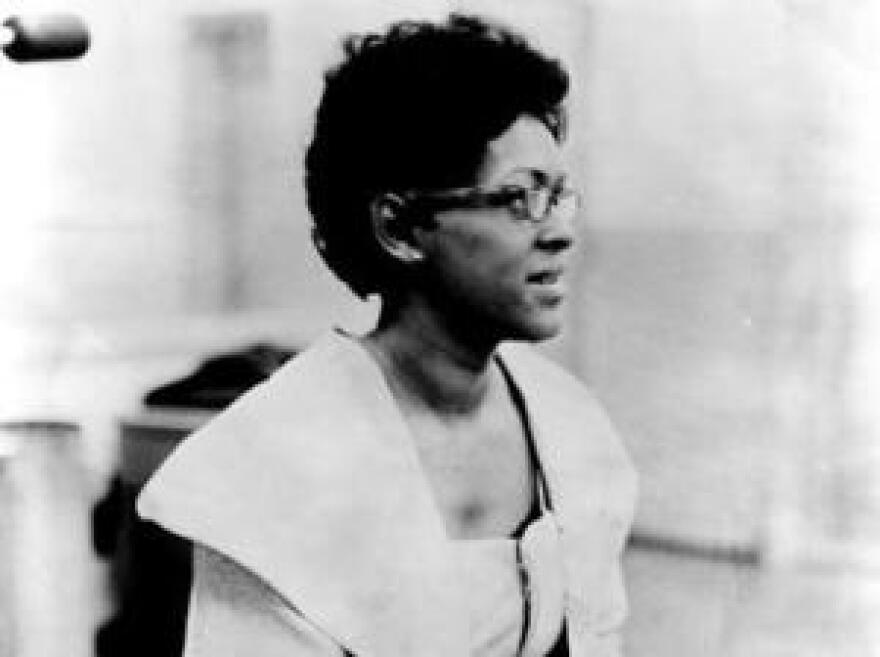There are certainly unique and flavorful totems of what it means to be Philadelphian: soft pretzels, cheese-steaks and everything Tastykake. You can get them baked and doled out in other towns, but they’re never quite as delicious as when they are made and served from home.
The same thing is true of Philadelphia’s deep baked-and-bred brand of jazz—and the soulful sound of the bluesy Hammond B-3 organ when heard in a trio setting. Think Jimmy Smith. Think Charles Earland. Think Bill Doggett, Richard “Groove” Holmes, and the entire DeFrancesco family. All were kings of Philly’s B-3 Hammond organ grind.
No pure purveyor or sonic chef, however, made work as tasty and truthful as Shirley Scott, “The Queen of the Organ.” With signatures such as a light touch, a love of luscious melody, and a drive toward accessibility, Scott changed the way jazz aficionados felt the B-3’s sound, as something less heavy, but more heavenly, without missing a beat.
To stick with the running concept of food for the moment, Scott even managed to give her first notable inroads onto the jazz charts a culinary theme: for saxophonist Eddie Davis, and with her contributions to his deeply grooving and deep fried funky classics, the ”Cookbook” albums and his 1958 hit song ”In the Kitchen.”
Born in Philadelphia in March of 1934, it was as if Shirely Scott was meant for jazz, built for jazz. Her father had his own speakeasy jazz club in the basement of the Scott family home. Her brother played saxophone, and Scott started playing brass when she got to Philadelphia Girls’ High school. Though the trumpeter was good enough to win a scholarship and play in All-City school programs, it is legend that at one point in her teens, she left home to play piano with a touring road band (it is also storied that Scott played in a trio with saxophonist John Coltrane in support of a vocal group, the Hi-Tones).
Restlessness such as that may have driven her to the Hammond B-3 organ in the first place, amazed and influenced by nights with organist Jackie Davis during his long residency at Club Harlem in Philadelphia, the rise of fellow Philadelphian, Jimmy Smith within jazz’s ranks, and the fullness and flexibility of the instrument.
“Davis and Smith were truly the first two organists who inspired me to pick up the instrument,” said Scott during a video-taped 1998 interview during her time as a Professor at Cheyney University. “Milt Buckner, Wild Bill Davis, and Larry Young too.”
When tenor-saxophonist Eddie “Lockjaw” Davis sought out replacements for his popular combo in 1955, Scott was hired, and made a sensation with “In The Kitchen,” as well as being highlighted on the saxophonist’s albums and spotlighted during his live shows. Davis was even rumored to have gone so far—with a hint of the misogynistic—to lighting her legs and feet so that they could show off her femininity and showcase the manner in which Scott played the bass lines on the foot pedals.
Leaving Davis’ band in 1960, she continued the road dog life, here and abroad with her reputation and talents at its highest—a love of complex bebop harmony, mixed with a driving rhythmic heft, combined with the inspiration of gospel. All that made her the perfect complement to tenor jazz soul saxophonist Stanley Turrentine, with whom she collaborated, focusing on jazz’s pre-fusion, funkier depths. They married in 1961 and their work through the 60s and 70s came to redefine the Hammond B-3’s groove as something sensualist, emotional, and even more aggressively rhythmic than it had been in its illustrious past.
But eventually, her relationship with Turrentine, both personal and professional, splintered. So she moved on to work with the Al Grey-Jimmy Forrest combo as a pianist—even as the spotlight dimmed on bluesy organ-based jazz—but brought it all back home with a fusion-y tone, with the B-3-hammond in tow on albums for the Muse label in the 1980. Scott also amazed jazz audiences by showing off her piano skills on several albums, showing off a deep and reverent love for gospel and bop, here presented with the airs of classical music.

By that time, however, Scott moved into her other love—education, and teaching the ins-and-out of jazz history at Cheyney University, Pennsylvania, where she had originally picked up her own BA and MA degrees. Scott became part of Bill Cosby’s Philly-filmed game show. You Bet Your Life, in 1992 and 93, as well as serving as a church choir director. Much of her latter-day fame revolved around her lawsuit with the manufacturers of the diet drug, fen-phen, which gave her life-altering heart and lung problems. But, she won an $8m settlement and spent her remaining years at home, in Philly, with the quiet care of her family.
Shirely Scott, the Queen of the Organ, left us in March, 2002, but she will always be Philadelphia jazz royalty, and her music will always feed our souls.

